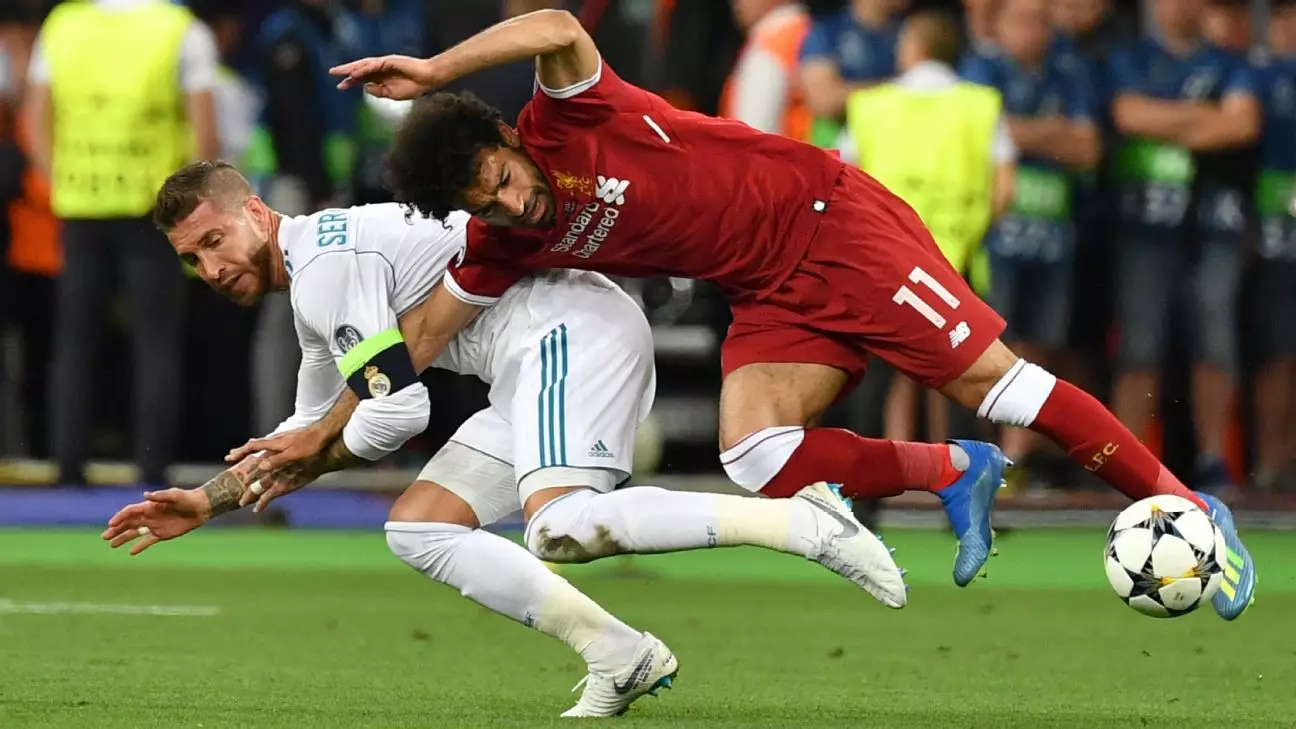The world of football is rife with rivalries, controversies, and colorful personalities, and few figures encapsulate this better than former Real Madrid captain Sergio Ramos. Recently, Jürgen Klopp—renowned for his outspoken demeanor—took a moment on Toni Kroos’ podcast, Einfach mal Lupen, to reflect on the Spaniard’s conduct during a pivotal match in football history. Specifically, Klopp scrutinized Ramos for his infamous challenge on Mohamed Salah during the 2018 Champions League final, a moment that left Salah injured and arguably altered the course of the match.
During that fateful final in Kyiv, Salah’s early exit due to a shoulder injury, resulting from a controversial tackle by Ramos, was devastating for Liverpool and their supporters. Real Madrid leveraged this opportunity to secure a 3-1 victory, but the aftermath of the match brought significant scrutiny to Ramos’s actions. Klopp’s comments now ignite conversations regarding the ethics of player conduct in situations where the stakes are extraordinarily high. He questioned not only the incident itself but also Ramos’s overall character as a player. This highlights an essential debate in sportsmanship—how far is too far, and what constitutes acceptable behavior on the pitch?
Klopp’s sentiment reflects a deeper philosophy regarding the morality of competitive play. He emphasized, “I could never understand that mentality,” suggesting that players who resort to such tactics betray a code of honor inherent in the game. This perspective resonates with many football purists who believe that the game should prioritize finesse and skill over physical aggression. The manager’s assertion that he would ensure such players depart his teams illustrates a stringent stance on sportsmanship and player conduct, advocating for a more respectful and honorable approach to football.
Contrasting Views: Kroos and the Debate on Team Dynamics
Nevertheless, Toni Kroos offered a contrasting viewpoint by defending Ramos as a “very good teammate.” This divergence in opinion opens the dialogue about the complexities of team dynamics. It raises questions about how players can embody different qualities—both commendable and contentious—while still being integral to a team’s success. While Ramos may exhibit aggressive play, Kroos emphasizes his value in team spirit and cohesion. This dichotomy showcases the multifaceted nature of player evaluation: success on the field can often overshadow ethical concerns.
Sergio Ramos’s legacy as a footballer is undeniably complex. His accolades, including numerous Champions League titles, are juxtaposed against a history of contentious on-field incidents like the one involving Salah. Klopp’s candidness not only questions Ramos’s character but also challenges the broader football community to reflect on the impacts of such behavior. As football evolves, so too must the standards by which talents are evaluated, ensuring that the essence of the game—character, respect, and skill—remains at the forefront of the sport’s legacy.
The conversation sparked by Klopp’s remarks is vital for future discourse. It reminds us that football is not just about winning; it’s also about how the game is played and the values athletes embody both on and off the pitch. As fans, players, and managers alike continue to navigate these complexities, the dialogues surrounding sportsmanship will undoubtedly shape the future of football.
